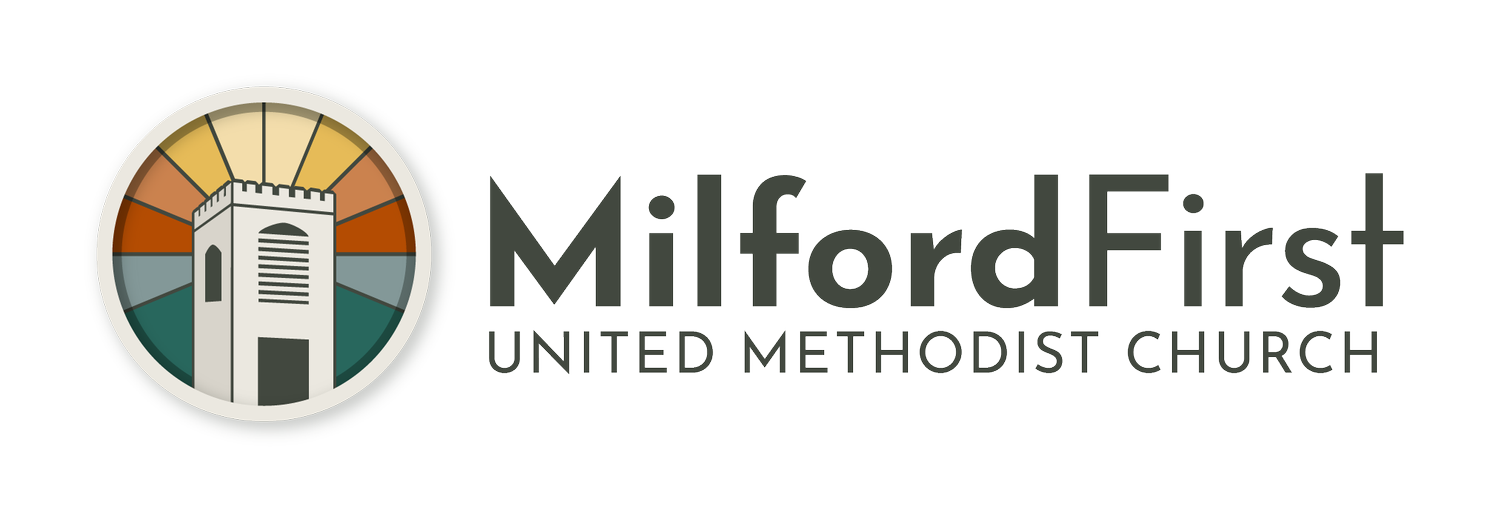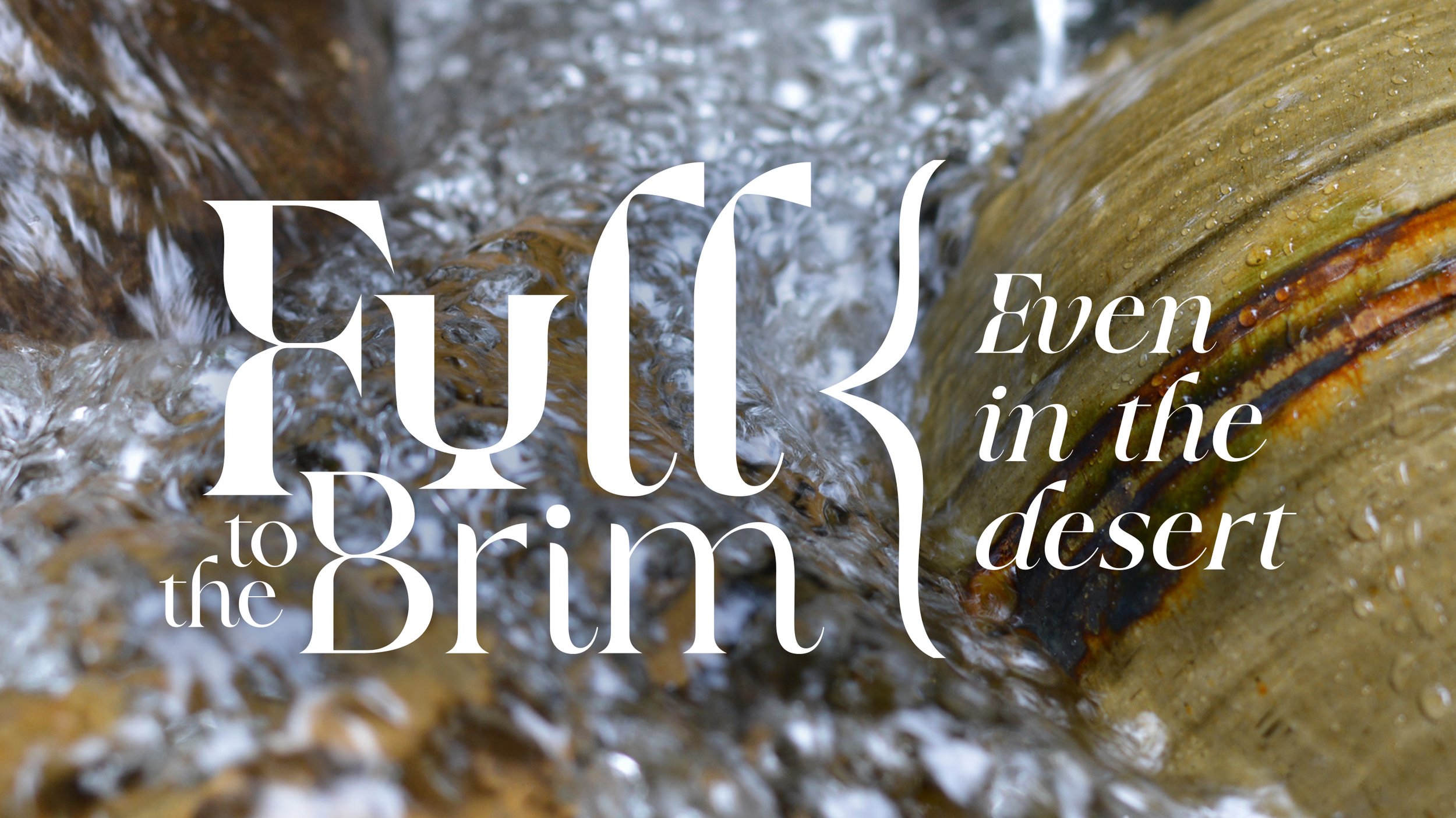The First Week in Lent: Even in the Desert
The theme of this year’s Lenten devotional, Full to the Brim, is an invitation into a radically different Lent, a full life. It’s an invitation to be authentically who you are, to counter scarcity and injustice at every turn, to pour out even more grace wherever it is needed. And so, this Lent, let us trust – fully – that we belong to God. Let us increase our capacity to receive and give grace. Let us discover the expansive life God dreams for us.
Read: Luke 4:1-13
Commentary by Rev. Larissa Kwong Abazia
It was four years ago when two women, one of whom had dark ash in the shape of a cross on her forehead, were locked in a loud, screaming embrace as tears streamed down their faces. That year, American Christians marked the beginning of Lent with a shooting at Marjory Stoneman Douglas High School in Parkland, FL.1 Four. Years. Ago. What is different?
While I want to say there have been small, incremental wins, my heart breaks at how little has changed. Too often, I am enveloped in doubt: I doubt my 3 year old daughter and 10 year old son will know a world without violence, divisiveness, homophobia, sexism, racism, classism and the countless other “-isms” that plague us. I doubt we will embrace our role as stewards of Creation, reversing the damage already done. I doubt our churches will embrace true welcome, transformed by those we deem “other” rather than simply providing a “space for one more.” I doubt that we can live as the faith-filled, wholistic community to which we are called.
Lent invites us into our own wilderness journey. It’s a patient walk of exploration which we inevitably escape on Easter morning. But if I were really honest with myself (and with all of you), I would say that we are never leaving this desolation. These doubts are rooted in the limitations of who we are as human beings, falling short of transformation over and over again.
But what if it isn’t about getting out of the desert? What if we are called to dwell in our doubts, fears, anxieties, and brokenness? What if we are meant to stand in solidarity with those trapped in their own wilderness experiences? I wonder if we can imagine making a home right here, a place existing in the tension between desolation and burgeoning possibility.
In the desert, we cast aside the temptations of this world and actively engage in the promise that abundant love will always have the final say. The desert may very well be right where we belong.
1 In February of 2018, a gunman opened fire at Marjory Stoneman Douglas High School in Parkland, FL, killing 17 and injuring 17 others. The beginning of Lent in 2022, the publication date of this devotional, marks 4 years since this tragedy.
From Here in the Sand
You’ve been here before.
I squeeze that truth like an orange in my hands,
willing some form of comfort to run out,
roll down my wrists,
calm these aching nerves.
You’ve been here before—
in the wilderness, in the desert,
in the place where nothing is what it seems
and everything is sharp.
You’ve been here before
so surely you know how hard it is
to hold tight to what is real
in the middle of a storm.
But because you’ve been here before,
I will stand tall.
I will sing songs of the river,
from here in the sand.
I will sing songs of the river,
into the wind.
Poem by Rev. Sarah (Are) Speed
Read: Luke 4:1-13
From the Artist | Hannah Garrity
“Jesus answered him,
‘It is said,
“Do not put the Lord your God to the test.”’
When the devil had finished every test, he departed from him
until an opportune time.”
(Luke 4:12-13, NRSV)
In this image, concentric circles depicting the temptations that Jesus meets in the wilderness radiate outward. A crown and swords echo the power of kings that the devil offers to Jesus. Steeples point outward between the swords.
“Do not put the Lord your God to the test.” Jesus quotes scripture in verse 12 of this Luke passage. And yet, the devil continues to test. Nails in the center foreshadow Jesus’ death on the cross.
“Do not put the Lord your God to the test.”
I depicted this story within the structure of a stained glass window. Where in our religious structures do we find temptation winning the day? Where do our selfish actions fall on this temptation continuum? May we see the abundance before us, dispelling the desire for more.
Pray
Breathe deeply as you gaze upon the image on the left. Imagine placing yourself in this scene. What do you see? How do you feel? Get quiet and still, offering a silent or spoken prayer to God.
Read: Deuteronomy 26:1-11
From the Artist | Rev. Lauren Wright Pittman
This text urges the harvester to ground themselves in ancestral and divine identity. This requires a primal knowledge of the answers to the questions, “Who are you?” and “Whose are you?” When the harvester brings the first fruits to the dwelling place of God, they are asked to offer a response to God, in which the harvester recounts the Exodus narrative. This narrative defines the harvester and gives understanding, resonance, and purpose to their offering before God.
Notice how the response is in first person plural: “When the Egyptians treated us harshly and afflicted us, by imposing hard labor on us, we cried to the Lord... and the Lord heard our voice and saw our affliction, our toil, and our oppression. The Lord brought us out of Egypt with a mighty hand and an outstretched arm, with a terrifying display of power…and he brought us into this place and gave us this land, a land flowing with milk and honey.” (Deut. 26:6-9, NRSV) I imagine this recitation roots the harvester in their identity as an Exodus person—a wandering alien, oppressed and afflicted, who was heard, seen, and rescued by God.
Regardless of whether or not the harvester directly experienced the events of their pronouncement before God, this narrative is where their identity is found and it changes how they live. Echoes of this narrative live in the harvester. This narrative affirms the truth that the harvester was once an alien, and whatever they have been given and all that they are belong to God. Therefore, all of the bounty—the sumptuous, nurturing, first fruits of the ground are to be shared with the aliens who reside among them. What would it look like for you to ground yourself in ancestral and divine identity? How would it change how you live? Who are you? Whose are you?
Pray
Breathe deeply as you gaze upon the image on the left. Imagine placing yourself in this scene. What do you see? How do you feel? Get quiet and still, offering a silent or spoken prayer to God.



